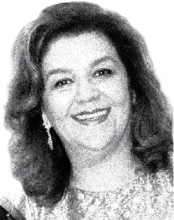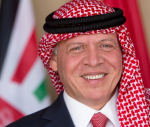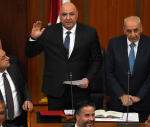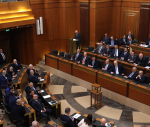You are here
Fascinating Jordanians of mixed parentage and origins
Nov 04,2017 - Last updated at Nov 04,2017
My 11-year-old son had an interview for admission in a senior school in England this week. At the interview, he told me later, he was asked to talk about himself.
He started the narration by saying that his grandfather — my father — was forced to leave Palestine by the Israelis and take up home in Jordan where I was born.
He, my son, now sees himself as half Jordanian, from my side, and half English, from his father’s side, living and visiting both countries, belonging to and loving both.
As he told his interviewer, all the elements of who he is, his divulged mixed ancestry and current reality contributed to forming his identity.
In his innocence, as he reflected on how he came across in the interview, he said he believed she found him “fascinating”.
I found this short story very telling and inspiring, but also heart breaking on so many levels.
This young boy, who had not really been exposed to my Palestinian heritage, was able to sense the historic injustice against the Palestinian people — including the grandfather he never knew — and absorb this fact and project it into his human and political identity facing the world.
He recognised, as his older brother had before him, that this is a cause that they are destined to carry forward and be influenced by throughout their lives.
It upsets me, because my children, and regardless of what shields of protection I weave around them, will never know the innocence and beauty of political idealism, because they were born with an injustice against them that they cannot shake off and will always influence their perspective on how politicians and powerful countries operate.
I worry when the day comes that they also realise that their father’s country, Britain, helped sign off their grandfather’s Palestinian homeland to a brutal and ruthless occupier.
My son also named Jordan as an integral part of his identity and home. He knows me, his mother, as Jordanian and therefore expects that he is also a Jordanian and has a right to claim Jordan as a home.
Yet my country, where he grew up as a small child and where he regularly visits his cousins, grandmother and uncle, has rejected him and denied him the right to make that claim.
In fact it was that rejection that forced him, his brother and father to pack and leave to England in order to escape their third-class status in Jordan.
The fact that Jordan continues to deny the children of its Jordanian female citizens the right to pass on that nationality within this globalised world we live in, reeks of xenophobia, gender inequality, injustice and, in my opinion, institutionalised corruption to save the interests of those who have a sense of privilege and entitlement.
I fret that the day will come when my two boys also come to recognise that not only was there a normalisation of a policy to deny them their right to their Jordanian identity, but that Jordan’s government and other official apparatuses allowed a group of loud bullies to intimidate the majority into submission on this policy.
This may look like a personal story. It is not. This is the reality of the majority of families now living in Jordan.
They are the products of forced mass migrations or even intended ones, whether from Palestine, Syria, Lebanon, Iraq, Sudan or Yemen, among what I understand are 36 nationalities that have sought refuge or a permanent home here in Jordan.
We married here, we went to school here, we worked here, we invested here and we dreamed here, and, most importantly, we have a political and social identity that recognises this country as our home.
We want to be the Jordanians of another origin, of mixed religions, married across the continents with other nationalities and races, but we want to be Jordanians and we want our children to carry that identity forward with pride so that they may, in turn, invest in this country’s future.
We have come to the point in our history where the description “Jordanian” cannot remain a micro-managed privilege bestowed only on those who claim that they are the forbearers of this country.
We have also come to a point where our origins — regardless of what these are — cannot be seen as a liability that takes away from our love for Jordan, allegiance to its regime or our right to access all our rights as citizens.
It is also important that the government come to realise the huge potential of this new generation of Jordanians and win them over in order for them to also contribute to the Jordan we all want.
I had grown complacent about my children’s right to carry my Jordanian nationality. I intend to be complacent no more… if only to positively spin and realise my son’s truly “fascinating” story of being a dual English-Jordanian national with a Palestinian cause.













